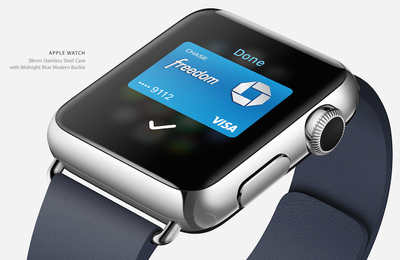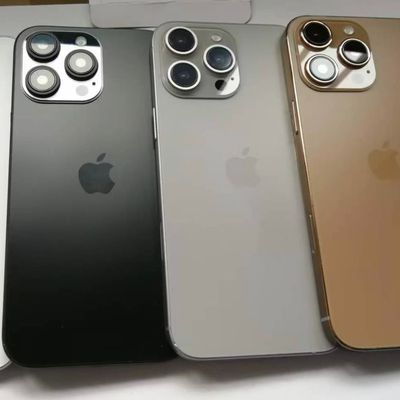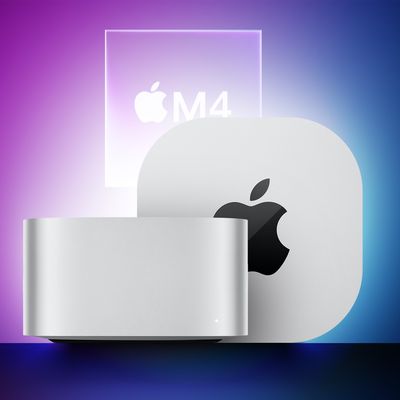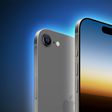Apple Watch Will Use Skin Contact for Apple Pay Security
When Apple announced that the Apple Watch would be able to use Apple Pay, the company's new mobile payment initiative, many wondered how secure the payments would be if the device lacked the security of Touch ID, which is used in the iPhone 6's implementation. Now, several members of the press have confirmed how the system works.

Both Rene Ritchie of iMore and Cult of Mac report that when a user first puts on the Watch they must type in a PIN code to authorize Apple Pay. Once it's on, the Watch uses constant skin contact, which it can sense using the four sapphire-covered lenses on the underside of the device, to authorize payments. However, once the device is removed from a user's wrist, they must re-enter their PIN when putting the device back on their wrist.
Thanks to sensors on the Apple Watch’s back, the device can tell when it’s being worn and when it has been taken off. When you first put the watch on, you must enter a code. When the watch is removed from your wrist, the watch locks itself and can’t be used for payments unless the code is entered again.
MasterCard's mobile payment executive Ed McLaughlin also told Re/code that the Watch would use the four sensors on the back of the device as a security measure, while Visa CEO Charlie Scharf said that Apple understood the risks of contactless payments and has a solution.
The Apple Watch is due to arrive in early 2015 and will start at $350.
Popular Stories
Leaker Sonny Dickson is back today with a new dummy unit image showing all four iPhone 16 Pro color variants, including the rose gold or "bronze" unit that replaces Blue Titanium in the existing iPhone 15 Pro models. The iPhone 16 Pro models are expected to come in black, white or silver, gray or "Natural Titanium," and a rose or rose gold color replacing Blue Titanium, according to Apple...
Multiple rumors have suggested that the iPhone 16 models are going to have an all-new button that's designed to make it easier to capture photos when the devices are held in landscape mode. Apple calls the button the Capture Button internally, and it is going to be one of the most advanced buttons that's been introduced to date with support for multiple gestures and the ability to respond to ...
Apple typically releases its new iPhone series in the fall, and a possible September 10 announcement date has been floated this year, which means we are just one month away from the launch of the iPhone 16. Like the iPhone 15 series, this year's lineup is expected to stick with four models – iPhone 16, iPhone 16 Plus, iPhone 16 Pro, and iPhone 16 Pro Max – although there are plenty of design...
Apple's iPhone 16 series is expected to debut in September 2024. This release follows Apple's trend of introducing new iPhone models annually in the fall. While the exact date has yet to be officially confirmed, the day of Tuesday, September 10 has been rumored as a possible announcement date, and September has traditionally been the month when Apple unveils its latest smartphone innovations. ...
Apple is moving forward with its project to develop a tabletop robotic device, according to Bloomberg's Mark Gurman. Subscribe to the MacRumors YouTube channel for more videos. The device would feature a large iPad-like display mounted on a "thin robotic arm" that would allow the display to tilt and up and down and rotate a full 360º, and it would serve as a "smart home command center," a...
It's almost September, but Apple still has multiple new product launches planned for 2024. New iPhone 16 models and Apple Watches are coming in September, and we're also going to get at least three Mac updates with M4 chips this year, according to rumors. Here's what's on the horizon. MacBook Pro Apple plans to refresh both the 14-inch and 16-inch MacBook Pro models, adding M4 chips. The ...
T-Mobile was fined $60 million by the Committee on Foreign Investment in the US (CFIUS) for negligence surrounding data breaches, reports Reuters. CFIUS penalized T-Mobile for failing to prevent or disclose unauthorized access to sensitive customer data. When T-Mobile merged with Sprint, it signed a national security agreement with CFIUS, which is what led to the fine earlier this year....





















